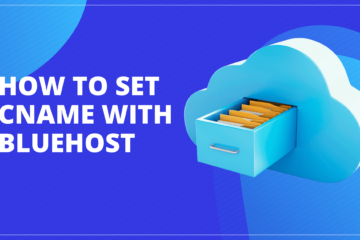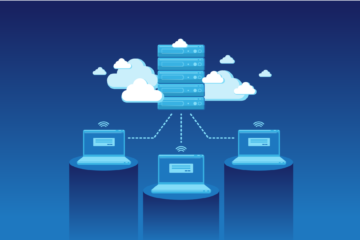What’s the difference between VPS and VPN?
Although VPS and VPN may sound similar, they have very different capabilities. Virtual Private Server (VPS), a hosting service, is different from Virtual Private Network (VPN), which is a technology that allows you to remain anonymous and private online. Both are services that are almost identical in terms of their names, but they are often wrongly grouped together. This can make it difficult to understand the difference, especially if you are just starting your web journey. Let’s learn more about these useful and exciting technologies.
What is VPS?
Before we compare these techs, let’s first define VPS Hosting and what makes it different from other platforms. VPS stands for Virtual Private Server. This is a type of hosting service offered by web hosting companies. You may be confused. Let’s dig deeper to learn more about VPS. A server is a computer that stores files and data on your website. This means that if you search for a domain name in your web browser, it communicates with the server to render the stored information. Virtualization technology is used to divide a physical server into multiple virtual machines. This allows for significant server resources as well as the ability to scale up the virtual servers when necessary. Because it offers private server environments, you don’t have to limit yourself to a single physical server. You don’t need to share server resources with others; you will only be able to share physical servers. Virtualization technology will not allow cross-over server usage.
Read More: How to Write SEO Friendly Blogs
The pros of VPS
- High Scalability
- Complete Customization
- A dedicated server is more affordable than an Dedicated Server
VPS Cons
- High-Performance
- Hosted Hosting is more expensive than shared hosting
- A dedicated server is more powerful than a shared one
- Good technical knowledge is required.
What is VPN?
Virtual Private Networks (VPNs) are a private network. They encrypt and tunnel internet traffic through public servers. VPNs protect your online privacy and security, and unblock geo-locked or censored content. Users also use VPNs to secure their online privacy. It is important to choose the right VPN for you.
Encryption: All traffic through the VPN should have encryption. This ensures that no third party can intercept your data.
Anonymity: A VPN can mask your IP address, making it difficult for websites tracking your online activities.
Speed: The speed of your VPN connection will vary depending on where it is located and how loaded it is. To ensure a reliable and fast connection, choose a VPN that has multiple servers.
If you are looking to purchase a VPN service, you should consider your needs when comparing VPS to VPN. A VPN is the best choice if you are looking for online privacy or security.
The pros of VPN
- Geo-locked content available
- Your private information is hidden
- Anonymity provides safety
- Remote work via secure connection
Cons of VPN
- Slow connection speeds
- Complex configuration
- You get less security with low-quality or free VPNs
Read More: Most Reliable Blog Hosting Service
What is the Price of a VPS vs. VPN? VPS vs. VPN?
There is no clear winner when it comes to VPS and VPN prices. Both options offer pros and cons, so it is important to weigh all aspects before you make a decision.
VPS hosting can be more expensive than other services, but it is still an option for those who need it. Many users will prefer a shared hosting plan over VPS, which comes at a lower rate. However, paid and free VPNs are available. A VPS is a great way to gain the flexibility and control of a dedicated server while still growing your business. As with a VPN, you should research and plan what you require from your web hosting.
Why do I need VPS?
If you have ever wondered about the differences between a VPN and a virtual private server, you are not alone. Both technologies can be used for online security and privacy, but they work differently. Here are the key differences between VPN and VPS. A VPS hosting allows you to have your own server space. VPS hosting is typically more expensive than shared hosting. It is more secure and private than shared hosting. You can share your VPS server with other clients, but you have full control over your virtual server. It also allows you to develop online visibility by being able to adjust your server’s storage and RAM according to your needs. This is a major advantage over shared hosting plans that can be slow and limited. VPS hosting allows your website to handle an unexpected spike in traffic. If you plan to set up complex online businesses and run complex applications, VPS hosting is a great option.
It requires technical skills to make the most of it. Many web administrators will be happy with a shared hosting plan. However, those who have more technical knowledge can consider a VPS before considering a much more expensive physical server.
Why do I need VPN?
VPNs protect your browsing history. It encrypts your web traffic to ensure that you are protected from hackers and other malicious clients. Associating with a public Wi Fi organization will increase your security. A VPN protects your security on your home network. This is because ISPs, digital advertisers and other online users can access information about your internet activity. You can hide your IP address and movement using a VPN. This allows you to use a totally anonymous identity to access restricted sites and streaming services. Although ISPs may limit your browsing speed after you use it frequently, they won’t be able to track your activities if you use a VPN. If you torrent frequently, ISPs may restrict your download speed.
Conclusion
A VPN is a user-friendly technology that allows you to surf the internet securely and safely. VPS allows you to host your website on virtual resources. However, you can use both VPS and VPS as you wish. Let’s say you have a large site. To get it, first use VPS hosting. To protect your website’s information, you can use VPN to access the internet. This was the end of VPS and VPN. We hope you are now able to make an informed decision about which option is best for your needs.




